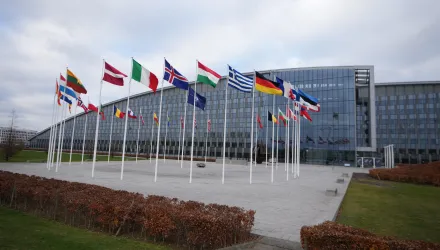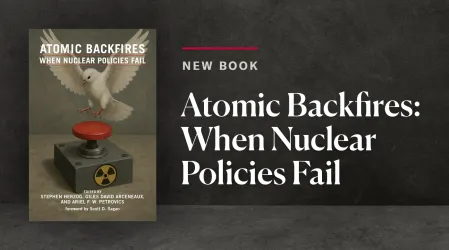Abstract
What are the consequences of military strikes against nuclear facilities? In particular, do they 'work' by delaying the target states ability to build the bomb? This article addresses these questions by conducting an analysis of 16 attacks against nuclear facilities from 1942 to 2007. We analyze strikes that occurred during peacetime and raids that took place in the context of an ongoing interstate war. The findings indicate that strikes are neither as uniformly fruitless as the skeptics would suggest, nor as productive as advocates have claimed. There is evidence that the peacetime attacks delayed the target's nuclear program, although the size of this effect is rather modest. The wartime cases were less successful, as attacks often missed their targets either due to operational failure or limited intelligence on the location of critical targets. In our concluding section we show that many of the conditions that were conducive to past success are not present in the contemporary Iran case. Overall, our findings reveal an interesting paradox. The historical cases that have successfully delayed proliferation are those when the attacking state struck well before a nuclear threat was imminent. Yet, this also happens to be when strikes are the least legitimate under international law, meaning that attacking under these conditions is most likely to elicit international censure.
INTRODUCTION
What are the consequences of military strikes against nuclear facilities? In particular, do they 'work' by delaying the target states ability to build the bomb? Policymakers in the United States, Israel, and even Arab countries such as Saudi Arabia1 have implied an affirmative response, indicating that military force might frustrate Iran's current nuclear program. Yet, this perspective is at odds with concerns in the scholarly literature that the use of force is ineffective and should be avoided at all costs.2 If attacks against nuclear programs significantly delay proliferation, then policymakers may be correct to keep military force in the nonproliferation toolkit. On the other hand, if strikes are ineffective tools of nonproliferation, then countries are wise to heed the cautionary advice of scholars who urge them to pursue other strategies....
Continue reading: http://www.informaworld.com/smpp/content~db=all~content=a936614922~frm=titlelink (login required)
1Ian Black and Simon Tisdall, 'Saudi Arabia Urges US Attack on Iran to Stop Nuclear Programme,' The Guardian, 28 Nov. 2010.
2See, for example, Dan Reiter, 'Preventive Attacks against Nuclear Programs and the "Success" at Osiraq,' Nonproliferation Review, 12 (July 2005), 355–371; Dan Reiter, 'Preventive Attacks against Nuclear, Biological, and Chemical Weapons Programs: The Track Record,' in William Walton Keller and Gordon R. Mitchell (eds), Hitting First, Preventive Force in US Security Strategy (Pittsburgh, PA: Pittsburgh UP 2006); Richard K. Betts, 'The Osirak Fallacy,' The National Interest 83 (2006), 22–5; Bennett Ramberg, 'Preemption Paradox,' Bulletin of Atomic Scientists, Jul./Aug. 2006, 48–56.
Kreps, Sarah and Matthew Fuhrmann. “Attacking the Atom: Does Bombing Nuclear Facilities Affect Proliferation?.” The Journal of Strategic Studies, April 2011
The full text of this publication is available via The Journal of Strategic Studies.







